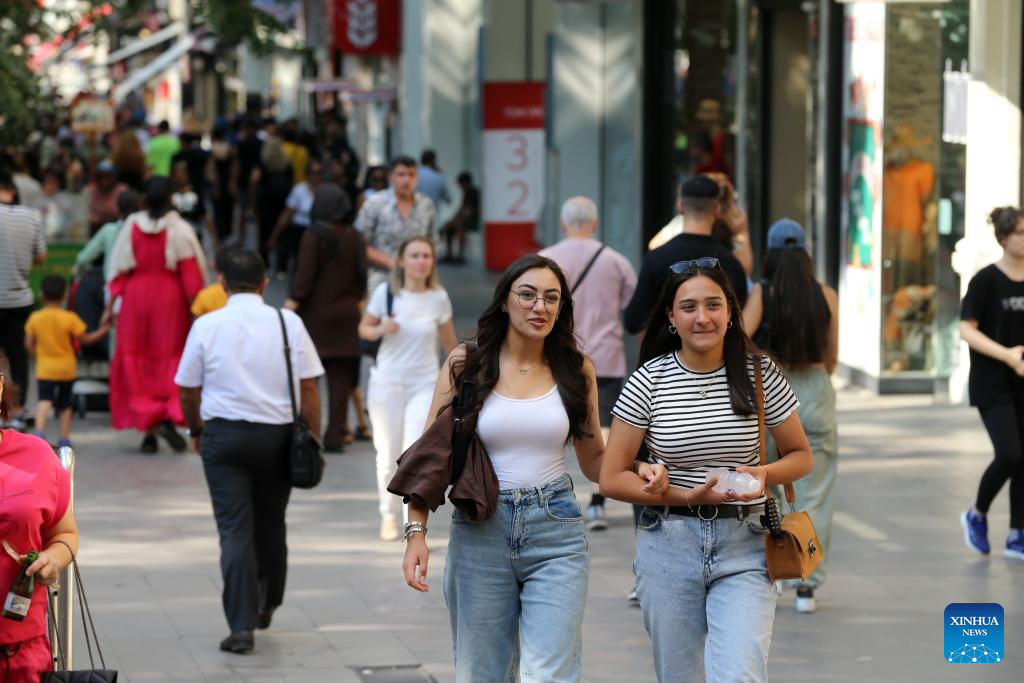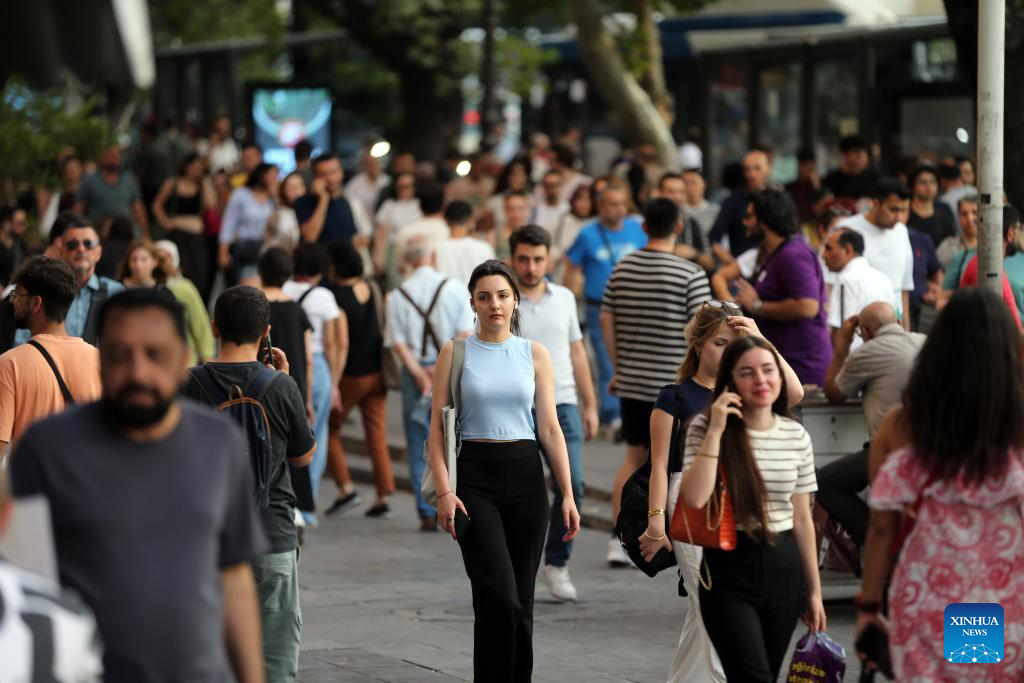Feature: Türkiye's economic woes cast shadow over future of young people

Young people are seen on the street in Ankara, Türkiye, Aug. 22, 2024. (Mustafa Kaya/Handout via Xinhua)
ANKARA, Aug. 23 (Xinhua) -- Arda Asrakci, a young man from Türkiye's capital Ankara, is gearing up for university, but the economic challenges facing the country are casting a shadow over his future.
"The high cost of living is a burden for us because we need to prepare for the future but lack the means to do so," the 18-year-old man told Xinhua in Kizilay, a popular gathering spot for young people in the city.
Asrakci, coming from a middle-income family, once lived a comfortable life, however, currently his family struggles to make ends meet.
Rising food and education costs are putting the greatest strain on his family's finances, he said.
"I cannot make plans for the future because the situation is unpredictable," the young man lamented, voicing his frustration at the high inflation that has impacted almost all sectors of Turkish society over the past years.
Following the implementation of a tight monetary policy and austerity measures since the summer of 2023, Türkiye's sky-high inflation cooled to a nine-month low of 61.78 percent in July.
Nevertheless, prices for most goods remain elevated and keep rising, putting additional pressure on struggling families. Notably, young people are a key demographic among those impacted.
"I'm worried I may be unemployed when I graduate," Bedirhan Cufadar, a first-year law college student, told Xinhua as he was leaving a well-known bookstore in Kizilay.
"I just went to buy some textbooks. I needed three, but I only managed to buy one because I didn't have enough money," he said, explaining that he paid 400 Turkish liras (11.8 U.S. dollars) for the textbook and was left with 20 liras in his pocket.
"What can I eat with 20 liras? I'm planning to start a diet," he added with a chuckle.
In Türkiye, young people aged under 30 reach nearly half, or about 44.9 percent, of the total population, while those aged 15 to 29 account for 22.9 percent of the whole population, according to official statistics.
The challenging economic conditions, combined with the large youth population, make it difficult for university graduates to secure decent and ideal jobs.
In recent years, many students have shown a strong interest in studying and living abroad.
A survey published in late June by the Konda Research Company revealed that around 56 percent of young Turks aged 15 to 24 would like to study and live abroad if given the chance, mainly due to economic hardships.
Most respondents of the survey view unemployment as the most urgent issue.
The unemployment rate among Turkish youths aged 15 to 24 reached 16.3 percent in the second quarter of 2024, according to data released by the Turkish Statistical Institute earlier this week.
"Young Turks are even more likely to feel the pinch of high inflation than older generations. They feel the strain of rising prices as they try to land their first jobs," Murat Muratoglu, an Ankara-based economist, said on the private news channel Sozcu.
"Gen Z believes that inflation-induced hardships will be long-lasting and impact their future earning power and financial health, delaying their car and home ownership," Muratoglu added.

Young people are seen on the street in Ankara, Türkiye, Aug. 22, 2024. (Mustafa Kaya/Handout via Xinhua)

Young people are seen on the street in Ankara, Türkiye, Aug. 22, 2024. (Mustafa Kaya/Handout via Xinhua)
Photos
Related Stories
- In pics: historical relics excavated from site near Haydarpasa Train Station in Türkiye
- Chinese automaker Chery emerges as top-selling brand in Türkiye: report
- Türkiye calls for greater defense cooperation with Germany
- Uncertainties in U.S. economic policies add to the strain on Turkish economy -- experts
- Türkiye's Istanbul tests Chinese smart metrobus
Copyright © 2024 People's Daily Online. All Rights Reserved.









